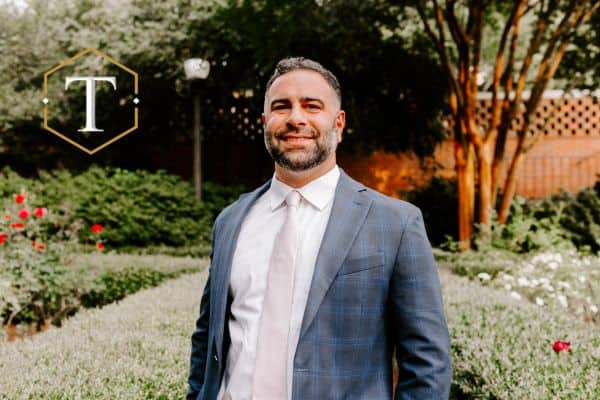If you've been arrested or charged with a criminal charge, or charges, in South Carolina, you may be left with a lot of questions. What is the next step? Where do I go from here? When do I go back to court? What is a preliminary hearing and how do I get ready for it? Do I need an attorney?
Since every case is different, you may be left feeling confused, even if this isn't your first encounter with the South Carolina court system. Worrying about court time and making sure you say and do the right things can cause undue stress and actually affect your case negatively, hiring a professional to help you through these hard times can lift this added stress off your shoulders.

Whatever your questions or needs, Touma Law Group in Greenville, South Carolina are here to answer any questions you have and get your case back on track and your life moving forward. Let's take a closer look at a preliminary hearing in South Carolina.
What is a preliminary hearing?
The next step after your bond hearing, which is your initial appearance before your judge, is a preliminary hearing. At this hearing you will appear before your assigned judge, who will look over all available evidence, and decide whether or not your case will continue forward or be dropped. During this hearing, the judge will listen to the testimonies of the arresting law enforcement officer, investigating detectives, and prosecutors and decide whether or not your case will be heard before a jury. These hearing are sometimes referred to as "probable cause" hearings, as the judge is deciding whether or not the state has enough probable cause to arrest and charge you.
What can I do at my preliminary hearing?
At your preliminary hearing, you or your attorney will have the opportunity to questions all those who testify, called a cross-examination. After the testimonies and cross-examinations, there are three basic actions that you or your attorney can take, or motions that can be filed.
- Request all charges be dropped due to lack of evidence
- Request some charges be dropped or reduced
- Ask for reduced bail or other type of relief

The judge will listen to you or your attorney's arguments and consider them against the available evidence. They will not be attempting to determine whether or not any certain piece of evidence is true, but only to decide whether or not there is sufficient evidence to lead one to believe that you have been arrested justly. This is why it is important that you put your best foot forward at your preliminary hearing. With an experienced criminal defense attorney at your side, you'll be well on your way to getting a dismissal of charges, which is always the goal, or receiving a reduction in charges.
Other relief can be many things, such as extensions, a release from house arrest, bail reduction, or even bringing awarded a bail if you were denied bail during your bond hearing.
What happens if my charges are dropped?
There are two ways your charges can be dropped: with or without prejudice. If your charges are dismissed with prejudice, this means the same charges based on the same case and evidence cannot be brought against you again. You are free and clear, and your case is over. If your charges are dismissed without prejudice, you do have the risk of being charged again later. For this reason, it is best to stay in touch with your attorney for a time. Most normally, however, if your charges are dropped you will not be charged again and are free to go.
What happens if the judge decides to move forward with my charges?
If you, your public defender, or attorney are not able to create enough reasonable doubt about your charges to have them dropped, the judge may decide to allow the prosecution to move forward with your charges. This means your case will go to trial and be judged by a jury for indictment.
Thankfully, during the preliminary hearing, you and your attorney will hear the basic case against you, and gain access to the evidence. This makes it much easier for your criminal defense lawyer to begin building a case against your criminal offense charges. In South Carolina, you are able to waive your preliminary hearing, if you so wish, but it is best not to so that you are able to begin building your defense before the start of your criminal trial.
Related Content: Do you lose your license for a DUI in SC?
Preliminary hearings are almost like mini trials, where all evidence will be briefly shown and discussed. This heads up view of evidence in advance of trial is great for criminal defense attorneys, as they can use this newly gained knowledge to contact witnesses, work on an effective defense, and take the time to gather evidence that the prosecutions evidence is incorrect. An experienced lawyer may also be able to get certain pieces of evidence thrown out, for a multitude of reasons such as heresy testimony from witnesses or your initial arrest being stricken from the court record, or illegal search and seizure.
Call Us Today
No matter the criminal or legal issues you are facing, it's time to get in control of them. With the experienced criminal defense attorneys at Touma Law Group on your side, attending your preliminary trial will be as stress free as possible. While our goal is to always get our clients charges dropped, and avoid trial, our attorneys have extensive trial experience and are prepared for anything your case might throw your way. We will stand by you every step of your legal journey, and do everything we can to see your case to the optimal outcome. Call us today for a free consultation, and let us take the burden off of your shoulders.



